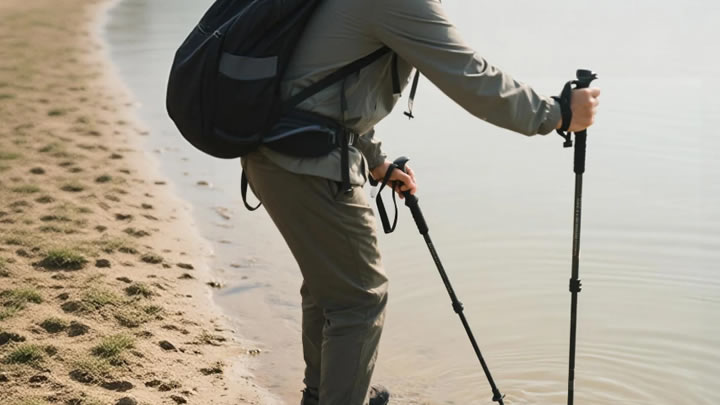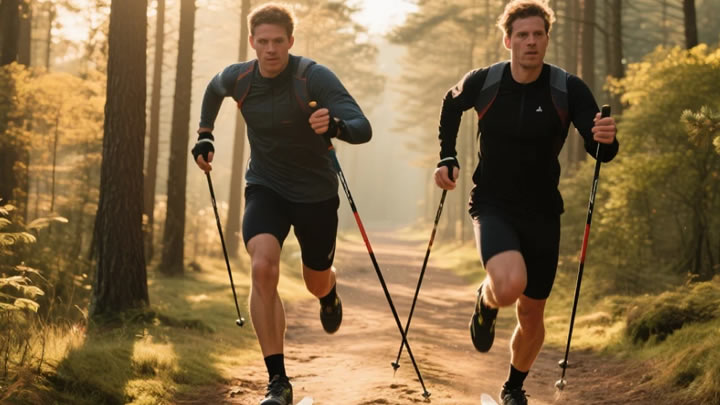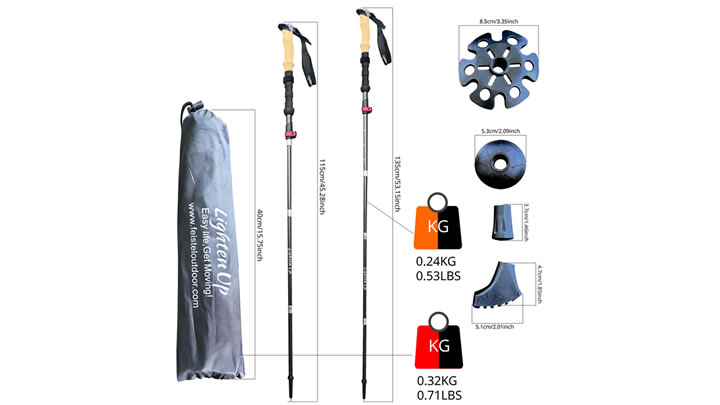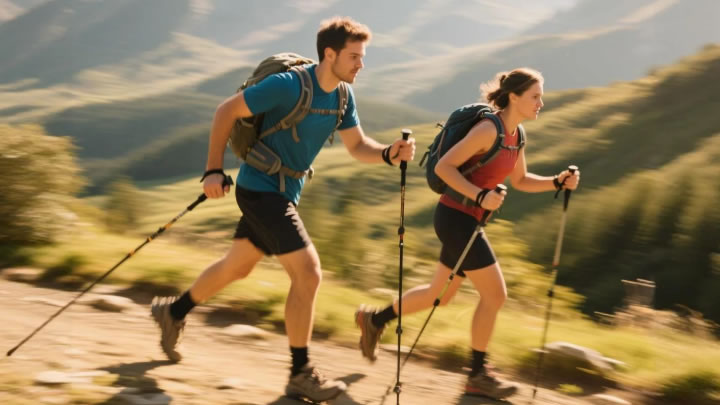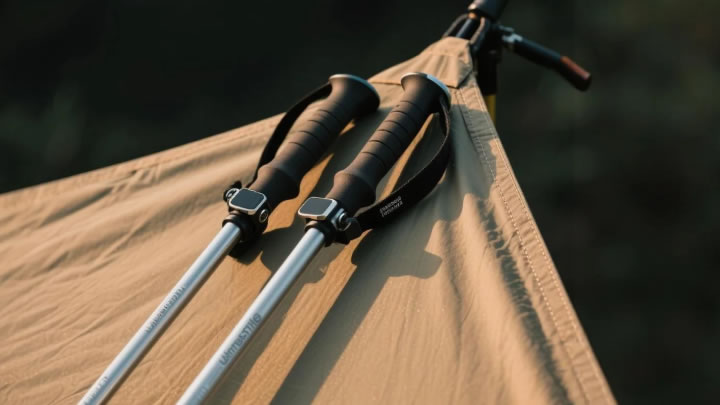How to lighten up hiking while staying eco-friendly
Lightweight hiking and eco-consciousness don’t have to clash. By choosing gear and habits that reduce both pack weight and environmental impact, you can tread lightly on the planet while enjoying the trails. Here’s how to merge ultralight efficiency with sustainability for guilt-free adventures.

1. Start with Eco-Friendly Materials
Opt for gear made from recycled, renewable, or low-impact materials:
- Shelters: Dyneema Composite Fabric (DCF) tents (e.g., Zpacks) use non-toxic adhesives and last longer than nylon, reducing waste.
- Sleep Systems: Patagonia’s recycled down sleeping bags or Therm-a-Rest NeoAir XLite pads (made with 50% recycled content).
- Clothing: Organic merino wool base layers (e.g., Icebreaker) or prAna’s recycled polyester jackets.
Pro Tip: Check brands for certifications like Bluesign® (sustainable textiles) or Fair Trade (ethical labor).
2. Lightweight Gear Swaps That Save the Planet
| Traditional Item | Eco-Friendly Ultralight Alternative | Weight Savings |
|---|---|---|
| Plastic water bottles | CNOC Vecto 2L collapsible bladder | 2 oz → 1.5 oz |
| Disposable utensils | Bamboo cutlery set or Light My Fire Spork | 3 oz → 1 oz |
| Single-use food wraps | Reusable silicone Stasher bags | 1 oz → 0.5 oz |
| Chemical sunscreen | Mineral sunscreen sticks (plastic-free packaging) | 4 oz → 1 oz |
3. Zero-Waste Food Strategies
- DIY Dehydrated Meals: Use a home dehydrator to repurpose leftovers (e.g., veggie chili) instead of buying plastic-packed options.
- Bulk Buying: Purchase nuts, oats, and dried fruit in bulk with reusable cotton bags.
- Compostable Wrappers: Brands like Mountain House now offer compostable meal pouches.
Avoid: Individually wrapped snacks—opt for homemade energy bars in beeswax wraps.
4. Minimalist Trail Hygiene
- Biodegradable Soap: Dr. Bronner’s (1 oz) for washing, but use it 200+ feet from water sources.
- Toothpaste Tablets: Bite Toothpaste Bits (0.2 oz) eliminate plastic tubes.
- Menstrual Products: Reusable DivaCup (0.5 oz) or organic cotton tampons (pack out waste).
Rule: Never leave soap, food scraps, or toilet paper—even “biodegradable” items take years to decompose.
5. Trail Ethics: Lighten Your Footprint
- Stay on Trails: Cutting switchbacks or trampling vegetation erodes soil and harms ecosystems.
- Fire Wisdom: Use a solar-powered lantern (e.g., LuminAID, 4 oz) instead of gathering firewood.
- Wildlife Safety: Store food in Ursack Major (8 oz)—a reusable, bear-resistant bag that replaces single-use canisters.
6. Repair and Reuse, Don’t Replace
Extend gear life to curb consumer waste:
- Patch It: Tenacious Tape fixes torn tents, jackets, or sleeping pads.
- Revive Old Gear: Re-waterproof jackets with Nikwax (eco-friendly formula) instead of buying new.
- Secondhand Gear: Shop platforms like REI Used Gear or Geartrade for discounted, pre-loved items.
7. Carbon-Neutral Hiking: Offset Your Impact
- Transportation: Carpool to trailheads or use public transit. Apps like Trailhead Transit find shuttle routes.
- Offset Programs: Donate to Cool Effect or Gold Standard to balance your trip’s carbon footprint.
- Local Trails: Explore nearby hikes instead of flying to distant destinations.
Case Study: A Zero-Waste Thru-Hike
Sarah, 28, completed the John Muir Trail with a 12-pound pack and near-zero waste:
- Gear: Used a secondhand DCF tent, DIY dehydrated meals, and a bamboo spork.
- Waste: Carried out 2 oz of trash (mostly tape and used sunscreen sticks).
- Lesson: “Lightweight and eco-friendly aren’t opposites—they’re partners.”
Common Pitfalls to Avoid
- Greenwashing: Some “eco” gear uses vague claims. Research materials (e.g., recycled vs. virgin nylon).
- Overpacking “Eco” Items: A reusable coffee cup adds weight if you don’t drink coffee.
- Ignoring Microplastics: Synthetic fabrics shed microfibers—use a Guppy Friend wash bag to trap them.
Budget-Friendly Eco Hacks
- DIY Gear: Make a groundsheet from Tyvek (reusable house wrap) or a rain skirt from recycled umbrella fabric.
- Natural Bug Repellent: Mix witch hazel, apple cider vinegar, and essential oils (no plastic spray bottles).
- Trail Cleanups: Join organizations like Leave No Trace to offset your impact while hiking.
Conclusion: Hike Light, Live Light
Eco-friendly hiking isn’t about perfection—it’s about progress. By prioritizing durable gear, waste reduction, and mindful habits, you protect the trails you love while lightening your load. Remember: The lighter you tread, the more future hikes you’ll preserve.

